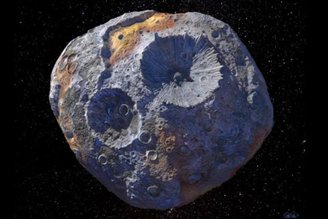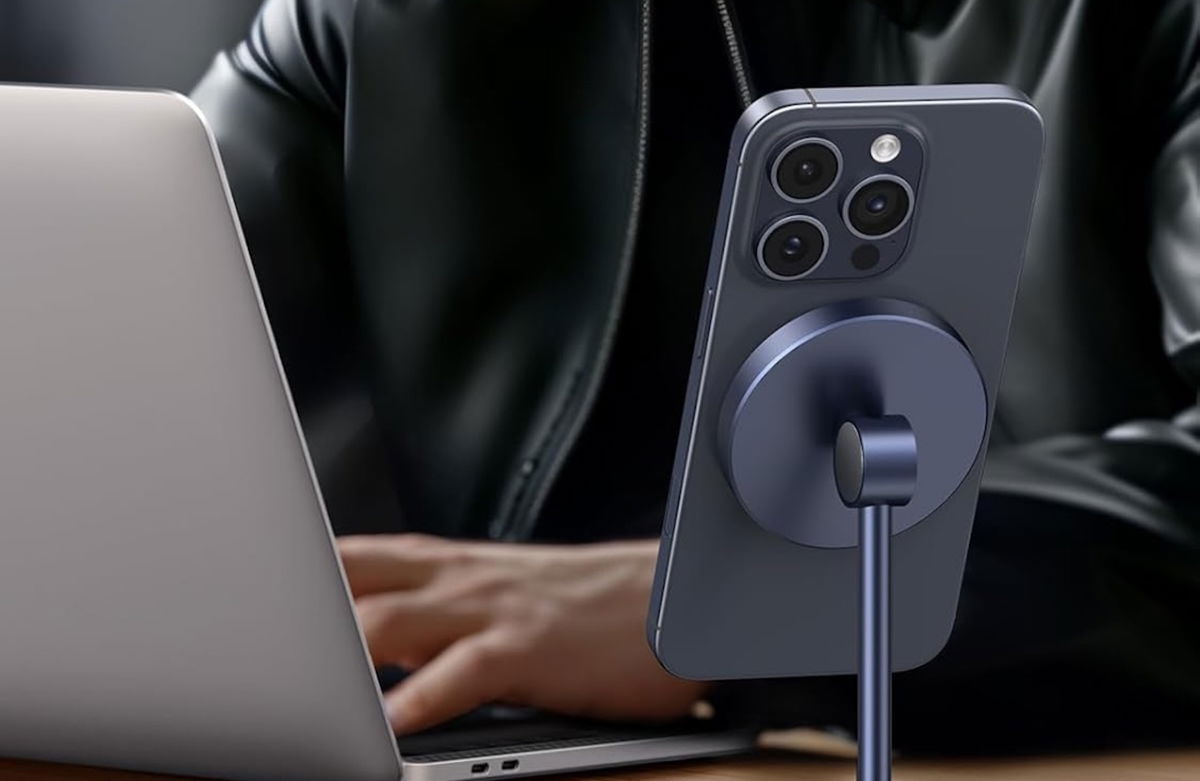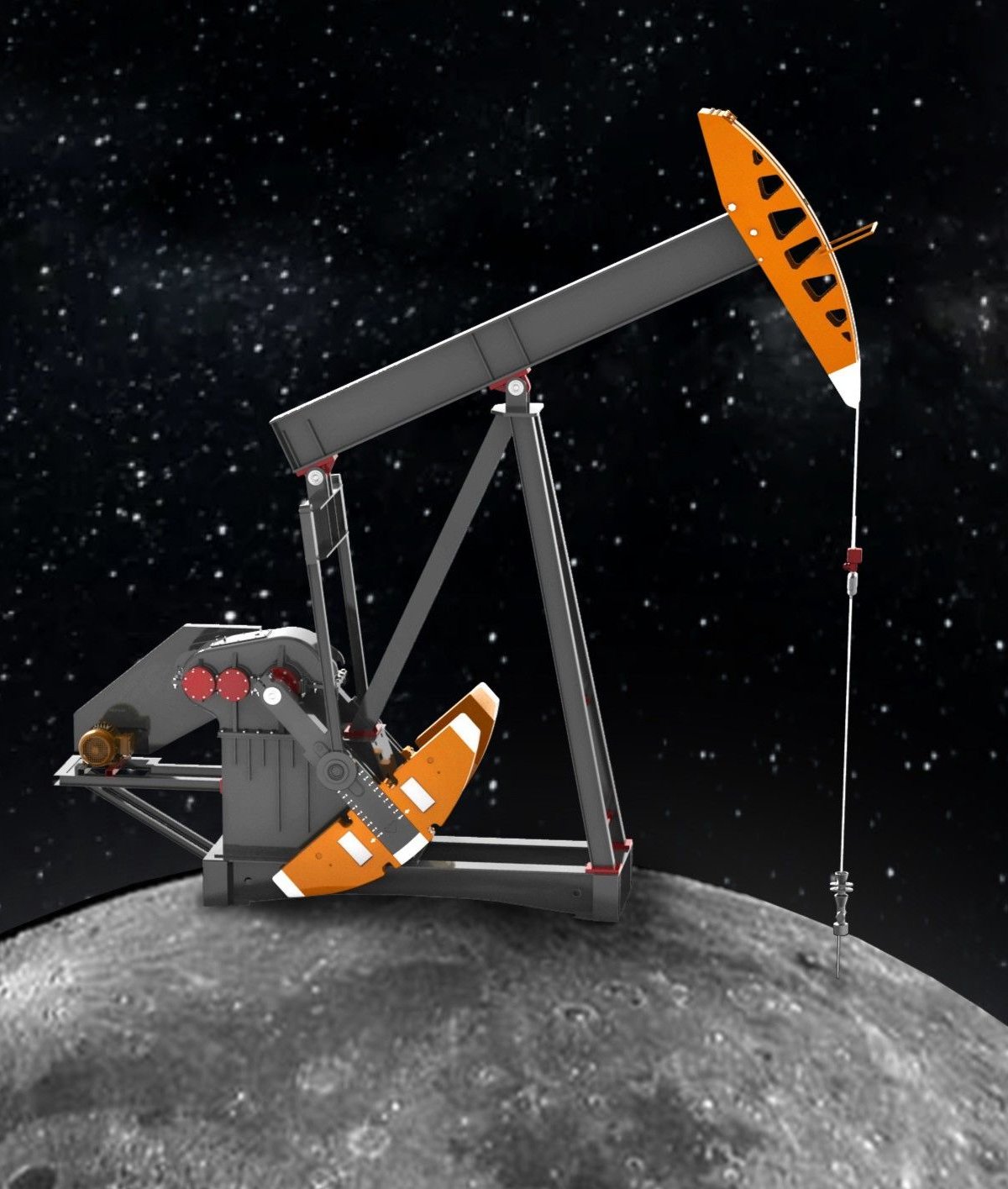The dream of 10 out of 10 people in the world to become a billionaire is not something that falls from the sky. But who knows, it may be in the sky, or rather among near-Earth asteroids (NEAs). Some of these celestial bodies, and others that eventually pass our planet, may contain precious metals.
According to Bertrand Dano of the University of Miami in the USA, some of these asteroids are “just made of stone, others contain high concentrations of rare metals such as platinum and gold for electronicsnickel and cobalt for catalysts and fuel cell technology, and of course iron,” explained the mechanical engineer in an article published on the university’s website.
Asteroid mining is already a reality, with “a handful of companies betting on it,” according to the professor. Since there are currently nearly two million asteroids larger than one kilometer in size, there is huge potential in these celestial bodies, especially after several recent missions have found, orbited and landed. and we even brought asteroid samples to our planet.
Mining asteroids can generate incalculable profits
Matt Gialich, co-founder and CEO of the AstroForge startup, stated in an interview with the Earth.com website that mining celestial bodies has the potential to generate incalculable profits and turn space exploration into a multibillion-dollar business. Founded in 2021 in San Jose, California, his company has already raised US$40 million (R$236 million) in funding.
An example of this wealth is the 200-kilometer-wide asteroid 16 Psyche, which will be visited by NASA’s Psyche space probe in 2029, and may be worth more than $10 quintillion in precious metals. If it can be exploited, It can turn every person in the world into a billionaire.
But you can’t hitch a ride on Elon Musk’s Falcon Heavy rocket, pick up a pickaxe and go to space. Asteroid mining, like its results, requires huge investments, from specialized equipment that can operate in vacuum to the technology to bring these precious payloads to Earth.
Asteroid mining has already begun
AstroForge doesn’t want to limit its ambitious plans to near-Earth, but has already received an experimental license from the US Federal Communications Commission (FCC) to operate in deep space. This means working two million kilometers from Earth with the Odin research space probe.
During the gold rush of celestial bodies, Gialich is not concerned with ethical or legal issues, such as claiming ownership of an asteroid. “We passed the Space Act in 2015, and the Space Act says any commercial company in the United States can mine asteroids for profit,” the CEO said.
To put a positive spin on his venture, which could have some dangerous consequences for the world’s population, Gialich defends himself by saying that he is not only looking for profit, but also a more ecological solution to polluting terrestrial mining species.
Who wins and who loses from space mining?

Although it is a path many entrepreneurs choose to become trillionaires, space mining carries some risks for the global economy and even the survival of the planet. During the manipulation of asteroids to facilitate their mining, someone deflects such a rock toward Earth.
There are also potential geopolitical and military conflicts, such as nations going to war and bombing asteroids overhead. Even the much-vaunted ecological solution loses out when we consider the inadequate disposal of space waste, which could theoretically degrade our soil, water and atmosphere.
Finally, on a purely economic front, there is a risk of market saturation as each shipment of precious minerals reaching the Earth will reduce commodity prices. The direct consequence of this will be an impact on the economy of developing countries that are dependent on raw material exports (another economy!).
Although this discussion is based on a technology that is not yet operational, it needs to be done and should not only involve negotiations between countries that have the technological capacity to mine asteroids in space. As in climate discussions, countries that will be affected by negative economic impacts must also be at the negotiation table in order not to be excluded.
Do you have any questions? Tell us on our social networks and get the opportunity to share the article with your friends. Until later!
Source: Tec Mundo
I’m Blaine Morgan, an experienced journalist and writer with over 8 years of experience in the tech industry. My expertise lies in writing about technology news and trends, covering everything from cutting-edge gadgets to emerging software developments. I’ve written for several leading publications including Gadget Onus where I am an author.












